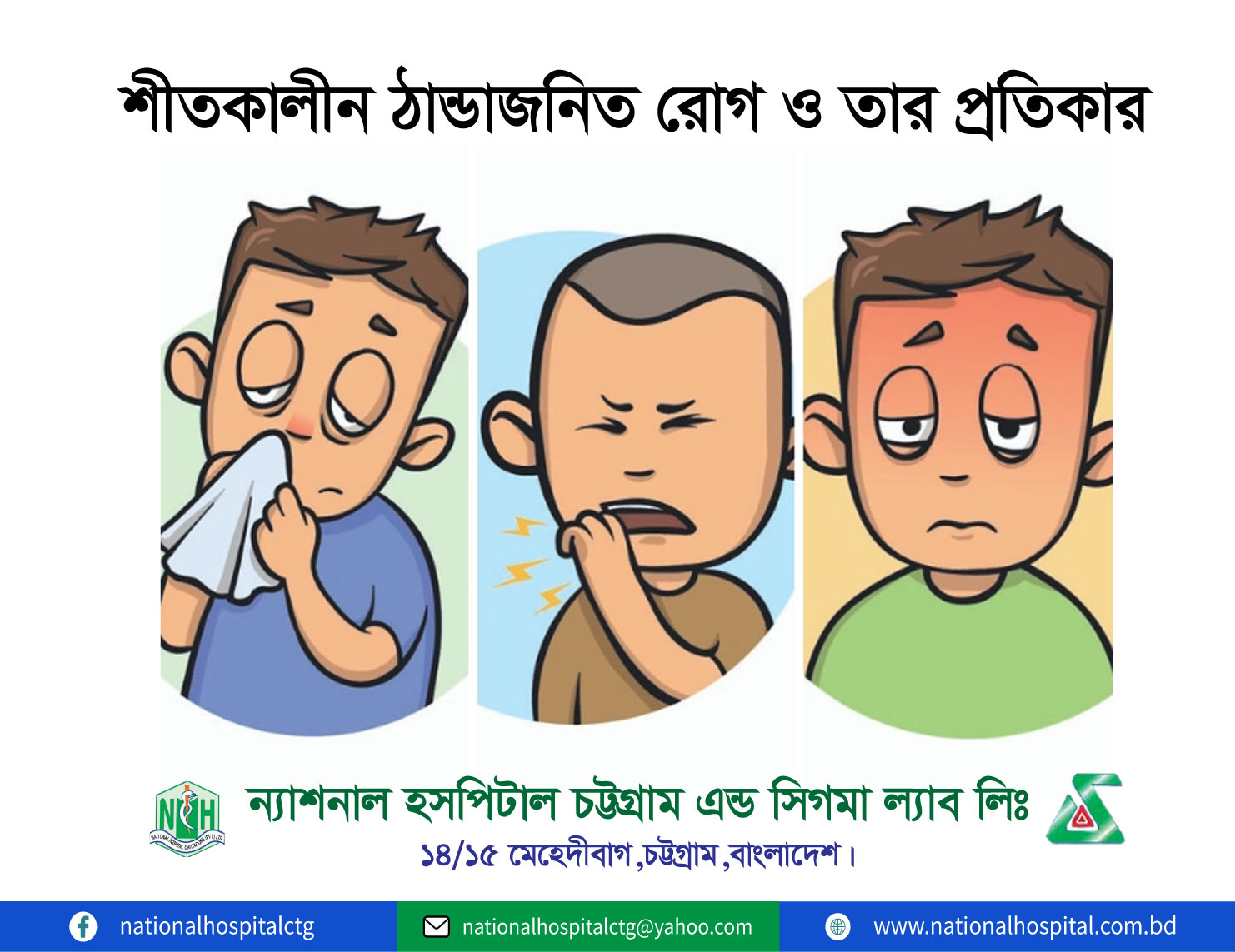Common Sickness In Winter

Common Winter Illnesses: A Comprehensive Guide
As winter approaches, parents are bracing themselves for the seasonal onslaught of common illnesses that often target children. From the familiar common cold to more serious respiratory conditions, understanding and effectively addressing these health concerns is paramount to ensuring the well-being of your little ones.
Common sickness in winter
Common cold or influenza starts with malaise, body ache, rhinitis, cough, headache, and fever. It usually persists for 5-7 days. Here are some common Illnesses in winter:
1.Cold and Influenza: Winter brings forth the ubiquitous common cold or flu, characterized by symptoms such as malaise, body ache, rhinitis, cough, headache, and fever. Antibiotics are not the solution; managing symptoms with paracetamol antihistamines and ensuring adequate fluid intake is crucial.
2. Bronchiolitis: A viral lower respiratory tract disease, bronchiolitis primarily affects infants aged two months to 2 years. Symptoms include rhinitis, cough, mild fever, and respiratory distress. Essential measures include keeping the baby warm, frequent breastfeeding, and hospitalization for oxygen therapy when necessary.
3. Pneumonia: While pneumonia can strike at any time, it is more prevalent in winter. Watch out for high fever, cough, and respiratory distress. Initiating home treatment with paracetamol and oral antibiotics like amoxicillin is an option, but seeking a doctor's advice is prudent. Preventive vaccines such as Pneumococcal and Hib offer additional layers of protection.
4. Sore Throat (Pharyngitis and Tonsillitis): Winter sees a rise in sore throats, often caused by viruses or bacteria. Gargling with warm water, paracetamol, and antihistamines can relieve pain. Persistent symptoms warrant a consultation with a doctor before considering antibiotics.
5. Asthma Attacks: Winter tends to exacerbate asthma symptoms. Mild attacks can be managed with nebulization using salbutamol and montelukast, but severe cases require prompt consultation with a physician. Inhalers are effective for children above four years.
6. Diarrhea: Winter diarrhoea typically begins as acute watery diarrhoea. Prevent dehydration with oral rehydration therapy (ORS), zinc therapy, breastfeeding, and a regular diet. Severe cases may necessitate hospitalization, underlining the importance of hand hygiene and vaccinations such as the Rotavirus vaccine.
7. Scabies: A common skin ailment in winter, scabies can be managed with regular bathing, hygiene, and using 5% Permethrin cream as directed. Treating the entire family at once is essential.
Best way to protect yourself from winter sickness
1. Maintain Hygiene: Regular hand washing is a simple yet effective measure to prevent the spread of viruses and infections.
2. Vaccinations: Ensure your child is up-to-date with vaccinations, including influenza, Pneumococcal, Hib, and Rotavirus vaccines.
3. Warm Clothing: Adequately dress your children to shield them from illnesses related to exposure to the cold.
4. Healthy Lifestyle: Encourage a balanced diet, regular exercise, and sufficient sleep to bolster the immune system.
5. Consult a Physician: If symptoms persist or worsen, seek prompt medical advice for an accurate diagnosis and tailored treatment.
By staying well-informed and implementing these preventive measures, parents can fortify their children against common winter illnesses, ensuring a season of good health and joy. At National Hospital, we recognize winter's unique health challenges, particularly for our little ones. If your child is experiencing any winter-related ailments and requires the expertise of a specialist, our team of dedicated and experienced doctors is here to help. We stand ready to provide personalized care to address common winter illnesses, ensuring your child's well-being. Don't hesitate to reach out to us for a doctor's appointment. Your child's health is our priority, and we are committed to delivering the highest standard of medical care at National Hospital.
